
Section 7. International water organizations and initiatives
7.1. Asia Water Council
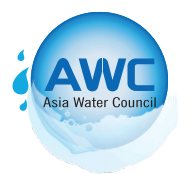 The Asia Water Council (AWC) is a global network focused in providing tangible solutions on Asian water challenges and facilitating multilateral discussions among stakeholders. It was established at the initiative of South Korea during the 7th World Water Forum in March 2015. As of December 2020, AWC is composed of 144 organizations from 27 countries. The AWC action tools include the application of high-tech tools in all areas of water management and nature conservation through IWRM, the reduction of risks through better water security, especially as concerns prevention of floods and droughts. AWC is the main organizer and sponsor of the Asia
International Water Week (AIWW).
The Asia Water Council (AWC) is a global network focused in providing tangible solutions on Asian water challenges and facilitating multilateral discussions among stakeholders. It was established at the initiative of South Korea during the 7th World Water Forum in March 2015. As of December 2020, AWC is composed of 144 organizations from 27 countries. The AWC action tools include the application of high-tech tools in all areas of water management and nature conservation through IWRM, the reduction of risks through better water security, especially as concerns prevention of floods and droughts. AWC is the main organizer and sponsor of the Asia
International Water Week (AIWW).
Activities in 2020
The 2nd Asia International Water Week/2-AIWW in Indonesia under the theme “Sufficient and Sustainable Water for All” has been postponed from October 2020 to November 2021. The AIWW program will include 24 thematic sessions, the Asia to World Statement Ceremony and Water Project Business Forum, as well as special sessions and an exhibition. The AWC Board of Council approved the composition and topics of the sessions (six themes with 4 sessions per each theme): (1) Security and sustainable growth (moderator – Australian Water Partnership/AWP); (2) IWRM planning/pilot projects to introduce smart technologies and build capacity (moderator – Qinghai University, China/K-Water); (3) Water management policy and technology in the context of climate change (moderator – IWHR/K-Water); (4) Water-Energy-Food-Ecosystem Nexus (moderator – IFAS/Daejeon University, Korea); (5) Water Security: responses to local, regional and global challenges (moderator – UNESCO/IWRA); (6) Asian Dynamic Water Center - power of knowledge and information (moderator – Global Institute for Water, Environment and Health/GIWEH).
Events. he following events were held: (1) AWC-ADB joint meeting (20-21 February, Manila); (2) meeting of representatives of the AWC Special Committees, which inter alia discussed the selection of 8 water projects to be funded in 2021-2022 (26 March, online); (3) AWC Bureau meeting (27 March, online); (4) 11th and 12th meetings of the Board of Council, where a series of online webinars was proposed for early 2021 (8 July and 16 December, online).
Source: GEF Agency of IFAS, Asian Water Council
7.2. Geneva Water Hub
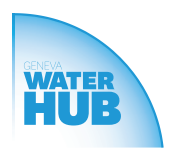 The Geneva Water Hub is a joint project of the Swiss Confederation (SDC, Global Program Water Division) and the University of Geneva. The Geneva Water Hub was established in 2014 to help prevent water conflicts at an early stage and to promote water as an instrument of peace and cooperation. The Platform for International Water Law (PIWL) was established by some members of the Department of Public International Law and International Organization of the Faculty of Law of the University of Geneva in 2009. Later, it became a part of the Geneva Water Hub. The Geneva Water Hub serves as the Secretariat of the Global High-Level Panel on Water and Peace.
The Geneva Water Hub is a joint project of the Swiss Confederation (SDC, Global Program Water Division) and the University of Geneva. The Geneva Water Hub was established in 2014 to help prevent water conflicts at an early stage and to promote water as an instrument of peace and cooperation. The Platform for International Water Law (PIWL) was established by some members of the Department of Public International Law and International Organization of the Faculty of Law of the University of Geneva in 2009. Later, it became a part of the Geneva Water Hub. The Geneva Water Hub serves as the Secretariat of the Global High-Level Panel on Water and Peace.
Activities in 2020
Events. The following events were held: webinars (1) “Water, Sanitation, COVID-19, and Cooperation in the Middle East” (30 April) and “Reducing the Risks of Climate-Related Water Conflicts” (28 August) in collaboration with the Environmental Peacebuilding Association; (2) “Water under Fire” with UNICEF (28 August); (3) “Facing the Climate Emergency Effectively Leveraging Science, Governance and Diplomacy” with IUCN during the Stockholm World Water Week (24 August); (4) “International Law and Transboundary Water Cooperation” in collaboration with DiploFoundation with the participation of experts from the Secretariat of the UNECE Water Convention and SIC ICWC (3 December); conference on “Use of Water as a Weapon of War: the Role of International Law” in collaboration with the Institute of Peace and Development of the University of Cote d’Azur; online side-event on “Ten years after the proclamation of the right to water: challenges and perspectives in times of crisis” during the 45th session of the Human Rights Council in collaboration with the Permanent Mission of Togo to UN (23 September).
The Geneva Water Hub also contributed to the final event of the Geneva Peace Week and the participation in two sessions on “Transboundary Water Resources Management: Challenges and Opportunities” and the Intergenerational Dialogue on “The role of water in Environmental Peacebuilding” (2-6 November).
Publications. The Geneva Water Hub and its PIWL also contributed to several publications, including the report on “Witnessing the Environmental Impacts of War: Environmental Case Studies from Conflict Zones around the World”, a special issue of the Review of European, Comparative & International Environmental Law (RECIEL) on “Water Protection and Armed Conflicts in International Law”; a paper on “The role of international case law in implementing the obligation not to cause significant harm” in the review on “International Environmental Agreements: Politics, Law and Economics”.
In collaboration with the GKU and SDC, the Geneva Water Hub developed a module on Hydropolitics and Hydrodiplomacy as part of the curriculum through the MSc in IWRM at GKU. The module focuses on (1) providing some ground definitions of key concepts such as hydropolitics, water cooperation or hydrodiplomacy; (2) addressing and deconstructing on-going narratives related to “water wars” or “water cooperation”; (3) setting the frame of existing international legal sources for the management of water resources; (4) providing different tools for a better understanding of conflicts and for managing water-related tensions (conflict mediation, negotiations skills); and (5) introducing additional perspective on the potential of water as an instrument for cooperation and peace.
Global Observatory on Water and Peace (GOWP)
Officially launched in 2019, the Global Observatory for Water and Peace (GOWP) is a platform open to all agencies and entities and coordinated by the Geneva Water Hub. It is an inclusive network with its central node at the Geneva Water Hub that unites and aligns regional and local partners, credible and neutral institutions committed to the agenda of water, peace and security. The GOWP functions by strengthening the nexus, from global levels (federating the Geneva International) to local levels (through the GOWP network and regional partners). By bridging and promoting existing skills, GOWP will improve the limited capacity of international actors to act collectively and effectively at the political and diplomatic levels and the search for a global home of hydro-diplomacy. GOWP is a network of nodes (partners) of different setups, which reflect the capacity for analysis and strategic foresight on water and peace in their “specific context”; this reflection takes place in a dynamic creative exchange and contributes to create a discreet “global space” (Safe Space) to progress on key themes of their regional/societal context, of generic scope, or of global scope. Those partners are both regional, and societal, i.e. representing the perspectives of youth, women, media, local voices and other communities of interest.
Publications. One of the objectives of GOWP is to produce an annual analytic report with the objective of outlining gaps, challenges, lessons learned, existing or emerging solutions and potential relevant new topics to consider and producing hydropolitical analysis conducive to peace and cooperation.
In 2020, the partners to GOWP have been working on their separate contributions to the overall report, and in December, a virtual exchange took place to exchange on their respective areas of priorities of analysis. For Central Asia, a group of leading experts made their contribution. The overall report of GOWP is to be published during the first half of 2021. Moreover, under the aegis of the GOWP Strategic Foresight Discussion Notes are developed. These documents are informal think pieces prepared by staff and partners of the Geneva Water Hub with contributions from GOWP network and external partners to encourage forward-looking discussions and exchanges of ideas. The first of these notes focuses on “Hydrodiplomacy in Rapid Action: Early Insights from the Sardoba Dam Disaster in Central Asia”.
Source: Geneva Water Hub
7.3. Global Water Partnership
 The Global Water Partnership (GWP) is a global network of action including over 3,000 partners in 179 countries. GWP is comprised of 13 Regional Water Partnerships (RWPs) and 69 National Water Partnerships (NWPs), with the mission to advance governance and management of water resources for sustainable and equitable development.
The Global Water Partnership (GWP) is a global network of action including over 3,000 partners in 179 countries. GWP is comprised of 13 Regional Water Partnerships (RWPs) and 69 National Water Partnerships (NWPs), with the mission to advance governance and management of water resources for sustainable and equitable development.
Activities in 2020
River basins spanning two or more countries account for around 60% of global freshwater resources, with 2.8 billion people relying on shared waters. Transboundary water cooperation is therefore critical to GWP’s mission to advance the governance and management of water resources for sustainable and equitable development.
Regional dialogues and knowledge-sharing. GWP experience shows that regional dialogues are effective in leading stakeholders towards basin-level cooperation on water management. In 2020, GWP worked with the Central American Commission for Environment and Development to organise a second regional dialogue. This resulted in the formation of a high-level panel with participation from government ministers from Costa Rica, Honduras, Nicaragua, and Panama. GWP has provided annual pan-African training events on water governance and international water law since 2015. In 2020, based on the results of survey of key stakeholders, it was decided to enhance the impact of these events and build further cooperation through adopting a more structured approach to knowledge dissemination and sharing in Africa. In addition to widening the reach of the training, the new approach will help to build a more extensive network of water professionals and decision-makers.
Caucasus and Central Asia. As part of the European Union Water Initiative Plus for the Eastern Partnership Programme (EUWI+) , GWP Armenia organized a public consultation campaign for providing information of River Basin Management Plan over the Sevan and Hrazdan basins: in 2019, on the main challenges facing water sharing, drinking water quality, pollution, and human health with more than 50 local stakeholders, and in June and July 2020. GWP Partners in Kazakhstan and Uzbekistan actively participated in the ongoing process of developing the draft Agreement between the Governments of two countries on joint management, use and protection of transboundary water bodies. GWP-Kazakhstan Chairman also as a member of the Special Working Group on the study and approval of the draft Agreement on the allocation of transboundary rivers resources between the Republic of Kazakhstan and the People's Republic of China took part in the meetings and discussions of the Kazakhstan-China Joint Commission on the Use and Protection of Transboundary Rivers.
Sharing transboundary water management knowledge. GWP has a well-established capacity-building programme in Africa, Asia, and Latin America, developed with a wide range of partners and targeted at practitioners and legislators involved in transboundary water management. At the global level and working with GEF and other key partners, GWP developed a massive open online course (MOOC) on “Governance for Transboundary Freshwater Security”. The course opened at the end of August 2020 and over 1,880 learners from 145 countries have participated as of March 2021. MOOC was also featured at a pan-Asian online workshop on monitoring SDG indicator 6.5.2 in response to participants’ request for capacity-building support.
Basin-level cooperation. In 2020, the riparian countries of the Drin River basin (Albania, Greece, Kosovo, Montenegro, and North Macedonia) jointly developed and signed a strategic action programme outlining more than 100 actions to overcome obstacles and promote sustainable water resource development. In Southern Africa, GWP helped mobilise €5 million from GEF for a new project on managing competing water uses and protecting ecosystems in the Buzi, Pungwe, and Save River basins, which are shared by Mozambique and Zimbabwe. GWP provided technical backing to the Economic Community of Central African States (ECCAS) to submit eight transboundary water projects for funding under Programme for Infrastructure Development in Africa (PIDA). This programme is backed by the African Union and aims to accelerate the development of key water infrastructure projects.
Source: GWP
7.4. International Commission on Irrigation and Drainage
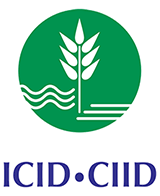 The International Commission on Irrigation and Drainage (ICID) was established in 1950 as a scientific and technical organization with a view to develop scientific technologies in engineering, agriculture, irrigation and drainage, economy, ecology, and social sciences to increase food production, protect environment, improve water quality, improve land productivity, and manage floods and disasters. Kazakhstan, Kyrgyzstan, Tajikistan, and Uzbekistan are the members of ICID.
The International Commission on Irrigation and Drainage (ICID) was established in 1950 as a scientific and technical organization with a view to develop scientific technologies in engineering, agriculture, irrigation and drainage, economy, ecology, and social sciences to increase food production, protect environment, improve water quality, improve land productivity, and manage floods and disasters. Kazakhstan, Kyrgyzstan, Tajikistan, and Uzbekistan are the members of ICID.
Activities in 2020
ICID has held its international activities online this year.
Events. Several webinars were organized: (1) jointly with WB Global Webinar on the Impact and Recovery from COVID-19 in the Irrigation and Drainage Sector (18 May); (2) Role of Safety Standards and Land Subsidence in Sustainable Development and Management of Flood Prone Areas (19 May); (3) Ensuring the Safety of Dams and Land Reclamation Network (10 September); (4) General Challenges of Irrigation Schemes Management Under Different Scales: With Special Consideration on Institutional and Organizational Aspects of System Management (21 January 2021); (5) Overcoming Water Challenges in Agriculture – Canadian Perspectives on #SOFA2020 (27 January 2021).
Council Meetings. The International Executive Council (IEC), the highest decision-making body of ICID, is vested with the management of the affairs of ICID. IEC meets every year to transact business of administrative and technical in nature. In preparation for the 71st meeting of the Council, the following events were organized: an online meeting of the European Regional Working Group (20 October), meeting of the Office-Bureau (17 November), and 41st meeting of the Permanent Finance Committee (26 November). At the 71st Council meeting, which gathered over 150 people, decisions were made based on the results of activities of ICID Working Groups and Permanent Committees, awards were given in the nominations “WatSave”, “Technology”, “Young Professional”, “Farmer” and “Best Paper in the ICID Journal”, World Heritage Irrigation Structures were recognized, the results of elections of new ICID office bearers were announced, and several events were rescheduled (7-8 December). Some of the meeting results are presented further:
• The elections results: Dr. Ragab Ragab (UK) – new President for 2021-2023; three Vice-Presidents for 2020-2022 – Prof. Choi, Jin-Yong, Seoul National University (South Korea); Dato’ Ir. Nor Hisham bin Mohd Ghazali, Malaysian National Committee on Irrigation & Drainage (MANCID), Director General, Department of Irrigation & Drainage, Ministry of Environment and Water; Eng. Rafat Nael Al-Intaki, Chief Engineer, Ministry of Water Resources of Iraq; Engr. Ashwin B. Pandya, incumbent Secretary General of ICID, re-elected for new term of 2021-2024; Vice-President Dr. Marco Arcieri (Italy) –Chairman of the Permanent Finance Committee;
• The number of ICID individual members was increased. They are: A. Kumar (India); A. Karva (India); A. E. Elshaikh (Sudan) and A. Urfels (Germany);
• The following groups will be established: (1) Land Drainage Working Group under the strategic theme “Schemes” to promote drainage development as part of IWRM; (2) Water-Food- Energy Nexus Working Group under the strategic theme “Basins” to share information, knowledge and experience, and develop links in the nexus approach towards new developments, methods, and approaches.
Source: I.G.Bondarik, ICID Honorary Vice-President
7.5. International Network of Basin Organizations
 The International Network of Basin Organizations (INBO) was established in 1994 in Aix-les-Bains (France) to promote integrated water resources management at the level of national and transboundary basins of rivers, lakes and groundwater aquifers to link economic growth, social equity, water and environmental protection, and civil society participation. Basin organizations, governmental administrations in charge of water, and bi and multilateral cooperation organizations are the members of INBO. INBO member organizations belonging to the same geographic region created 8 regional networks of INBO.
The International Network of Basin Organizations (INBO) was established in 1994 in Aix-les-Bains (France) to promote integrated water resources management at the level of national and transboundary basins of rivers, lakes and groundwater aquifers to link economic growth, social equity, water and environmental protection, and civil society participation. Basin organizations, governmental administrations in charge of water, and bi and multilateral cooperation organizations are the members of INBO. INBO member organizations belonging to the same geographic region created 8 regional networks of INBO.
Activities in 2020
Events. The following events were held: (1) online webinar “Water Information Systems, Governance and the Interests of Remote Sensing – for an Informed Water Resources Management at National and Basin Levels” (15 September, over 200 participants from 73 countries); (2) webinar “Cost of Climate Change Adaptation at Basin Level vs. Cost of Inaction” (13 October); (3) INBO World Liaison Bureau meeting (3 November); (4) annual 18th “Europe-INBO 2020” International Conference (9-10 November); (5) 5th AfriAlliance Innovation Brokerage Event: Climate proof IWRM (29 October); (6) webinar “Participation of Stakeholders, Civil Society and Youth in the management of the basins of rivers, lakes & aquifers” (10 December).
INBO actively participated in its partners’ activities, including the first UNECE Global Workshop on Data and Information Exchange in Transboundary Basins (UNECE, December 2019) and the first virtual roundtable “Digital Transformation Challenges and Opportunities for West African River Basin Development Organizations” (Geneva Water Hub, July 2020).
Projects. A Memorandum of Understanding was signed with the Mekong River Commission with a request of support to reinforce their data access/exchange and water information system. Organizational and technical support was provided to the Organization for the Development of the Gambia River (OMVG, Guinea) for developing their data management capacities under preparation with the GWH. Work was continued on the “100 water and climate projects for Africa” initiative launched in December 2017 with the support of the French Government, the World Bank and the United Nations General Secretariat. INBO continued sustaining the incubation platform for water and climate projects by the mobilization of new financial donors.
Publications. INBO published the new issue of “INBO Newsletter” (No.28, November 2020) with the key highlights of Network’s activity.
Source: INBO
The Eastern Europe, Caucasus, and Central Asia Network of Water Management Organizations (EECCA NWO)
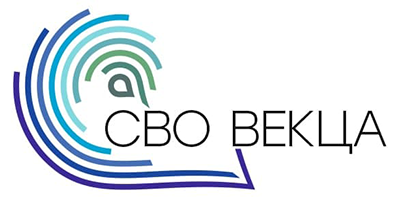 EECCA NWO is one of the eighth regional networks of INBO. It was established in 2010 to exchange views, experiences, and information on various aspects of water-management activity. The Network is administered by SIC ICWC, with the support of the Government of Russian Federation and the UNECE, and Network's activities are coordinated with those of INBO.
EECCA NWO is one of the eighth regional networks of INBO. It was established in 2010 to exchange views, experiences, and information on various aspects of water-management activity. The Network is administered by SIC ICWC, with the support of the Government of Russian Federation and the UNECE, and Network's activities are coordinated with those of INBO.
Activities in 2020
EECCA NWO contributed to the development of the Network’s website and the knowledge base on the CAWater-Info and supported the Atlas of Water and Environmental Organizations in EECCA (24 organizations were added); e-newsletter “Water management, irrigation and environment in EECCA countries” is prepared and disseminated weekly.
At the end of the year, the Network’s members started contributing to the study on “Statements made by the Central Asian countries at the UN General Assembly in 1992-2020: Key highlights and priorities” and “Environment and Transboundary Cooperation at the Statements made by the EECCA countries at the UN General Assembly in 1992-2020”. The collection and compilation of best practices on IWRM and transboundary water cooperation in EECCA has been started also. An online database of water, environment and sustainable development experts has been launched to facilitate their collaborative research and involvement in development programs around the world. Preparations has begun for the Network's videoconference “Transboundary Water Cooperation in the EECCA countries: Lessons Learned and Future Directions” to be held in March 2021.
Source: EECCA NWO Secretariat
7.6. Inter-Islamic Network on Water Resources Development and Management
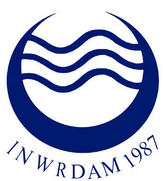 The Organization of Islamic Cooperation (OIC) was established upon a decision of the first high-level Islamic Conference, which took place in Rabat, Kingdom of Morocco on 25 September 1969. In March 1970, the first ever meeting of Islamic Conference of Foreign Minister (ICFM) was held in Jeddah; it was decided to establish a permanent Secretariat in Jeddah headed by the organization’s Secretary General. OIC consists of 57 members and 5 observers.
The Organization of Islamic Cooperation (OIC) was established upon a decision of the first high-level Islamic Conference, which took place in Rabat, Kingdom of Morocco on 25 September 1969. In March 1970, the first ever meeting of Islamic Conference of Foreign Minister (ICFM) was held in Jeddah; it was decided to establish a permanent Secretariat in Jeddah headed by the organization’s Secretary General. OIC consists of 57 members and 5 observers.
The Inter-Islamic Network on Water Resources Development and Management (INWRDAM) was established by the Standing Committee on Scientific and Technological Cooperation (COMSTECH) of OIC in 1987 (Islamabad, Pakistan). The headquarters of INWRDAM is located in Amman and hosted by the Hashemite Kingdom of Jordan. INWRDAM is a non-political and non-profit organization having international legal status. It is one of the technical bodies of COMSTECH and OIC focused on water resources development and management. Currently, only 19 OIC countries (out of 57) are members of INWRDAM: Bahrain, Bangladesh, Egypt, Iraq, Jordan, Lebanon, Malaysia, Mali, Niger, Oman, Pakistan, Saudi Arabia, Sudan, Syria, Tajikistan, Tunisia, Turkey, Uzbekistan and Yemen.
Activities in 2020
Events. A Symposium “Water Crisis Knows No Borders” was held with participation of official representatives from 14 OIC Member-States, OIC bodies and other international organizations. The participants discussed: (1) how to use the INWRDAM platform for a more productive dialogue focused on case studies from the Network Member-States; it was decided to develop a five-year vision for transboundary water resources management to be approved by the 11th meeting of the INWRDAM Governing Body; (2) the development of a Roadmap to improve resilience of local communities in vulnerable basins in INWRDAM Member-States and a five-year Plan of actions and partnership development areas to achieve the OIC water goals (9 February).
The INWRDAM 11th Governing Body meeting was held on 9-10 February. Activities of the Network for 2018-2019 and the Biennial Action Plan for 2020-2021 were on the agenda. Following the discussion of the Plan, the participants recommended to develop transboundary water cooperation, invite water centers/institutes from OIC Member-States to join INWRDAM, increase resilience to climate change, support publications on water-related issues in OIC countries, etc. As part of the Work Plan, INWRDAM will be leading an initiative on organization of the OIC Water Forum on a biennial basis.
Source: GEF Agency of IFAS, www.oic-oci.org
7.7. International Water Management Institute
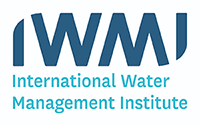 International Water Management Institute (IWMI) is a research-for-development (R4D) organization, with headquarters in Colombo, Sri-Lanka, offices in 13 countries and a global network of scientists operating in more than 30 countries. IWMI is a Research Center of CGIAR, the global research partnership for a food-secure future. IWMI’s Vision reflected in its Strategy 2019-2023 is “a water-secure world”. IWMI leads the CGIAR Research Program on Water, Land and Ecosystems.
International Water Management Institute (IWMI) is a research-for-development (R4D) organization, with headquarters in Colombo, Sri-Lanka, offices in 13 countries and a global network of scientists operating in more than 30 countries. IWMI is a Research Center of CGIAR, the global research partnership for a food-secure future. IWMI’s Vision reflected in its Strategy 2019-2023 is “a water-secure world”. IWMI leads the CGIAR Research Program on Water, Land and Ecosystems.
Activities in 2020
New appointments. After current IWMI Director General, Dr. Claudia Sadoff was appointed Team Convener and Managing Director, Research Delivery and Impact of the inaugural CGIAR Executive Management Team, Dr. Mark Smith, former IWMI’s Deputy Director General, was appointed as IWMI’s Director General. His immediate priority will be working with partners to “build back better” by enhancing the resilience of water systems in the aftermath of the ongoing pandemic and contributing to CGIAR.
Global research projects: “Water and Land Management Trajectories” (2020-2021/WLE), “FutureDAMS” (2017-2021/Research Councils UK), “Water and Climate Adaptation Meta-Review” (2020/ACIAR), “Sustainable Groundwater” (2017-2020/WLE).
Research projects involving Central Asian countries: AGRUMIG to address labor mobility and changes in agriculture and the rural sector (2019-2022, Kyrgyzstan, Tajikistan/European Commission); “Assessment of Transboundary Water and Land Resources in the Amu Darya Basin” (2019-2020, Uzbekistan/ISTC); “Water-Energy-Food-Climate-Health nexus in Central Asia” (2017-2020, Tajikistan, Uzbekistan/USAID); “Ground Water Monitoring Ferghana Valley” (2019-2020, Uzbekistan/SDC); TA-9782 UZB: “Climate Adaptive Water Resources Management in the Aral Sea Basin” (2020, Uzbekistan/ADB); “Background Study on Water Management in Uzbekistan” (2019-2020, Uzbekistan/EBRD); “Water Resources and Agriculture” (2016-2020, Uzbekistan/USAID).
Awards. IWMI won: (1) the Water Prize of the Prince Albert II of Monaco Foundation for development of scientific solutions in support of some of the world’s poorest populations; (2) the award for innovative work using remote sensing technology in recognition of the positive impact IWMI’s South Asia Drought Monitoring System (SADMS) has had. Since IWMI launched SADMS in 2014, the system has guided national, state and district-level authorities in India and Sri Lanka to take timely action to prepare for drought.
Work with partners. In May 2020, when super cyclone Amphan hit India and Bangladesh, IWMI provided maps that enabled authorities in those countries to identify and evacuate populations and identify damaged infrastructure and farmland to plan a recovery response. The researchers have access to more than 600 satellite images and generate more than 20 maps based on satellite data before and after the cyclone.
Grants. Five organizations from India, Nepal, Pakistan, and Bangladesh were awarded grants from the SoLAR Innovation Fund established by SDC and IWMI to support technical, financial, and institutional innovation for upscaling of solar irrigation.
Source: IWMI Office in Uzbekistan
7.8. International Water Resources Association and World Water Congress
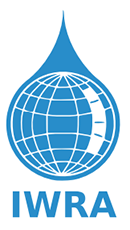 The International Water Resources Association (IWRA) is a global knowledge network of water experts. Since 1971, the Association has grown to become a preeminent key actor working internationally for the sustainable use and management of the world's water resources.
The International Water Resources Association (IWRA) is a global knowledge network of water experts. Since 1971, the Association has grown to become a preeminent key actor working internationally for the sustainable use and management of the world's water resources.
Activities in 2020
Events. The following events took place in 2020: (1) online conference supported by UNESCO-IHP “Addressing Groundwater Resilience under Climate Change” (28-30 October, 2,600 participants from 130 countries); (2) online General Assembly of the Association (24 September, 150 members from all over the world); (3) webinars on 11 different topics based on special issues of “Water International” magazine or dedicated to various water-related events, such as the World Water Day, water issues in COVID-19.
Working Groups. The structure and governance of the IWRA Working Groups were improved. As a result, the Working Groups can be initiated and chaired by IWRA members, rather than being represented by a group of individual experts. Two new Working Groups on Groundwater and Young Professionals were created.
Projects. IWRA, K-water and the Asia Water Council (AWC) agreed to initiate a new phase of collaboration with the “Smart Water Cities” project.
Publications. Policy Brief documents were published: 8 issues as part of the “Green Series” and 4 - “Blue Series”. Eight issues of “Water International” were published. Within the agreement with the UNESCO i-WSSM (International Centre for Water Security and Sustainable Management) on annual co-publishing of the Global Water Security Issues (GWSI) Paper Series, the paper for 2019 “Water Reuse within a Circular Economy Context” was published. Preparations have begun for a new issue on groundwater to be published in 2021.
Source: 2020 IWRA Activity Report
7.9. Stockholm International Water Institute and World Water Week
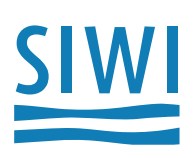 The Stockholm International Water Institute (SIWI) is a Swedish not-for-profit Foundation. The Stockholm International Water Institute’s vision is a Water Wise World – a world that recognizes the value of water and ensures that it is inclusively shared and used sustainably, equitably, and efficiently for all. At SIWI, we believe that the best way to tackle water crises and help bring about lasting change – is to strengthen water governance among public and private actors alike. SIWI focuses on priority areas including transboundary water cooperation, international policy, WASH, and water governance and streamlines three cross cutting issues – gender equality, youth empowerment, and human rights-based approaches – throughout all programming. SIWI hosts the world’s premier annual water meeting and water dialogue platform, the World Water Week and we award the prestigious Stockholm Water Prize and the Stockholm Junior Water Prize. As a trusted convenor, they are the host and driver of important initiatives such as the UNESCO Category II Center the International Centre for Water Cooperation (ICWC) and the Shared Waters Partnership (SWP), hosted by SIWI’s Transboundary Water Cooperation Department.
The Stockholm International Water Institute (SIWI) is a Swedish not-for-profit Foundation. The Stockholm International Water Institute’s vision is a Water Wise World – a world that recognizes the value of water and ensures that it is inclusively shared and used sustainably, equitably, and efficiently for all. At SIWI, we believe that the best way to tackle water crises and help bring about lasting change – is to strengthen water governance among public and private actors alike. SIWI focuses on priority areas including transboundary water cooperation, international policy, WASH, and water governance and streamlines three cross cutting issues – gender equality, youth empowerment, and human rights-based approaches – throughout all programming. SIWI hosts the world’s premier annual water meeting and water dialogue platform, the World Water Week and we award the prestigious Stockholm Water Prize and the Stockholm Junior Water Prize. As a trusted convenor, they are the host and driver of important initiatives such as the UNESCO Category II Center the International Centre for Water Cooperation (ICWC) and the Shared Waters Partnership (SWP), hosted by SIWI’s Transboundary Water Cooperation Department.
World Water Week
The 2020 World Water Week was held online. During the week, there were 120 sessions focused exclusively on solutions to global water issues. Two areas in particular stood out - resilience to climate change impacts and digitalization. Many sessions addressed strategies for coping with various future shocks – from climate change and ecosystem degradation to pandemic and food shortage. The following key messages have been delivered: safety is a priority; collaboration is necessary for sustainability; disconnectedness is extremely dangerous; business solutions are needed; it's time for solutions; decision-makers play an important role in changing behavior; what we really value.
Activities in Central Asia and Afghanistan in 2020
SIWI’s Shared Water Partnership program engaged in several key activities in Central Asia and Afghanistan supporting multi-track riparian dialogues, targeted capacity building, and networking opportunities to elevate regional water cooperation.
Events. The following events were held: (1) a water diplomacy workshop for government officials from Afghanistan focused on strengthening communication resilience against the backdrop of escalating disinformation and other information influence campaigns (February); (2) a closed webinar for its basin partners focused on enhancing inter-ministerial coordination for improved transboundary cooperation (June); (3) a focused session on water diplomacy within annual Central Asian Leadership Program on Environment for Sustainable Development (September).
New program. In partnership with SDC, the University of Corvinus Budapest, and CAREC, the “Water as a Driver of Sustainable Recovery: economic, institutional and strategic aspects of water resources management in Central Asia” initiative was launched within the framework of the Blue Peace Central Asia.
Source: SIWI
7.10. World Water Council
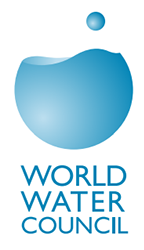 The World Water Council (WWC) is an international multi-stakeholder platform. It was established in 1996 on the initiative of renowned water specialists and international organizations, in response to an increasing concern about world water issues from the global community. The World Water Council catalyzes collective action during and in between each World Water Forum – the world's largest event on water. Organized every three years with a host country, the Forum provides a unique platform where the water community and key decision makers can collaborate and make long-term progress on global water challenges.
The World Water Council (WWC) is an international multi-stakeholder platform. It was established in 1996 on the initiative of renowned water specialists and international organizations, in response to an increasing concern about world water issues from the global community. The World Water Council catalyzes collective action during and in between each World Water Forum – the world's largest event on water. Organized every three years with a host country, the Forum provides a unique platform where the water community and key decision makers can collaborate and make long-term progress on global water challenges.
9th World Water Forum “Water Security for Peace and Development”
In late 2019, the First Announcement of the 9th World Water Forum was published and presented a Roadmap for the Forum, including its four core priorities: Water Security, Rural Development, Cooperation, and Means and Tools. In 2020, Senegal and the World Water Council have decided to postpone the 9th World Water Forum scheduled in Dakar, to March 21-26, 2022.
The 9th World Water Forum will be the first large-scale international water-related event to be organized in sub-Saharan Africa. The objective of this 9th Forum is to have strong political commitments made by leaders, with practical propositions and actions delivered. The Heads of State will constitute the major part of the political outcome of the Forum. The Heads of State Summit will be held on the first day of the Forum, four keystone roundtables (one for each priority) will take place during the Forum week, and a key event will bring together the synthesized outcomes related to each priority. Different stakeholders will be part of the Forum, including political level, private sector, civil society, academia, etc.
Other WWC Activities in 2020
A virtual Board of Governors meeting was held on 17 June. The meeting addressed emerging issues within the water community due to the spread of COVID-19. Participants reflected on three thematic topics which will guide their work and contribute to the 9th World Water Forum in Dakar: (1) the importance of sanitation in the fight against COVID-19; (2) challenges posed by the COVID-19 pandemic in financing access to water and sanitation; and (3) water and biodiversity. The most recent progress in the preparatory process of the Forum was reported as well.
Events. WWC representatives took part in a number of large meetings, including: a meeting of the OECD Water Governance Initiative (9-10 January, Paris); virtual session of the Civil Society Engagement Group C20 Summit “Urgent Collective Action for Water Security” (6 October); Annual Conference of the virtual International Association for Hydro-Environment Engineering and Research (IAHR) and the Chinese Hydraulic Engineering Society (CHES) (18 October); Cairo Water Week (18 October); Brazil Water Week (26 October); Global Water Leaders Forum (10 November), etc.
Publications. The Council published the “World Water Council Membership Guidelines”. It presents the membership policy of WWC and establishes the principles of the membership as well as transparent procedures for the relationship between WWC and its members. This document is complementary to the By-Laws and Constitution of the Council. Six issues of “Water Policy” magazine and a special issue on “Water in the Himalayas: A Water Management Experience with Adaptation in Mind” were also published.
Source: WWC